|
London - Join the first ever Asia House Fortnight of Film in August for the screening of two critically acclaimed documentaries set in Asia.
Kicking off the fortnight on Thursday 13 August will be 'Mahout – The Great Elephant Walk' (88mins), winner of the Best Film Award at the 2014 London Independent Film Festival. 'Mahout' follows the story of ex-London city worker, now eco-lodge owner Tim Edwards, who needs to relocate four elephants and their mahouts (a person who works with, rides and tends an elephant) between two national parks in southern Nepal. However, walking some of the largest land animals in existence across one of the most densely populated regions on Earth is no simple task, as this epic tale reveals. A Q&A with Mahout’s filmmakers, James Dartnall and Jack Wylson, will follow the film. To book for this event, click HERE. The Second screening, on Tuesday 18 August, will be of 'The Silk Road of Pop' (53 mins), a portrait of the explosive pop music scene among the Uyghur community in China’s Xinjiang Province. The film tells the story of Ay, a young music fan from Xinjiang. Apprehensive about her own life choices as a young Uyghur woman in China and curious about the outside world, she turns to music for answers and is drawn to musicians who mirror her struggles in their songs. 'The Silk Road of Pop' taps into the rhythmical zeitgeist of what it means to be young and Uyghur in China, highlighting how along the ancient Silk Road, music is one of the hottest commodities. The film is the Winner of the Best Canadian Film Award at the Toronto Reel Asian International Film Festival amongst other awards. To book for this event, click HERE. Two delicious flavours of popcorn will be served free of charge on both screening nights.
0 Comments
Boston - I always love a gift especially if it's books. Met up with food photographer and blogger Tamara Buran in Boston, who gifted me with two additions to my library that I'm so looking forward to getting stuck into as soon as I get back to Abu Dhabi middle next month. The Books: 'How to Fight Islamist Terror From the Missionary Position: A Novel' by Tabish Khair (2014) Funny and sad, satirical and humane, this novel tells the interlinked stories of three unforgettable men whose trajectories cross in Denmark: the flamboyant Ravi, the fundamentalist Karim, and the unnamed and pragmatic Pakistani narrator. As the unnamed narrator copes with his divorce, and Ravi - despite his exterior of skeptical flamboyance - falls deeply in love with a beautiful woman who is incapable of responding in kind, Karim, their landlord, goes on with his job as a taxi driver and his regular Friday Qur'an sessions. But is he up to something else? Who is Karim? And why does he disappear suddenly at times or receive mysterious phone calls? When a 'terrorist attack' takes place in town, all three men find themselves embroiled in doubt, suspicion, and, perhaps, danger. In his novel, set in contemporary times in the west, Khair combines generic elements from the crime thriller, the immigrant novel, the campus novel, and the young adult romance to comment deeply and movingly on our lives today. It is a gripping novel full of suspense, humour, love and unforgettable characters. 'I Remember Beirut' by Zeina Abirached Zeina Abirached, author of the award-winning graphic novel 'A Game for Swallows' returns with a powerful collection of wartime memories. Abirached was born in Lebanon in 1981. She grew up in Beirut as fighting between Christians and Muslims divided the city streets. Follow her past cars riddled with bullet holes into taxi cabs that travel where buses refuse to go, on outings to collect shrapnel from the sidewalk. With striking black and white artwork, Abirached recalls the details of ordinary life inside a war zone. We then toured the Isabelle Stewart Gardner Museum together where Mr. Fabulous enjoyed a catnap as the Borromeo String Quartet played renditions of J.S. Bach (C-sharp Minor Fugue from the well-tempered Clavier Book 1), Dmitri Shostakovich's String Quartet No.12 in D-flat Major, Opus 133 (1968) and ended in Beethhoven's string Quartet No.14, Op.131 (1862) as part of the Museum's Sunday Concert Series. The String Quartet featured artists Nicholas Kitchen, violin/ Kristopher Tong, violin / Mai Motobuchi, violoa and Yessun Kim, cello. 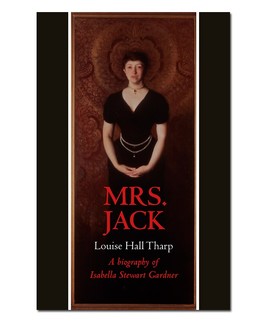 The Book: An in-depth biography of Isabella Stewart Gardner of Boston, via New York, in the 19th century. An American charmer and art collector, Isabella Stewart Gardner and her husband Jack kept company with many leading cultural figures of the day including Henry James, John Singer Sargent and James McNeill Whistler. by Rana Asfour London - In November 1966 artist Tom Phillips wanted to find an old book for threepence and alter every page with various techniques to create an entirely new work. The novel he happened to fall upon was a yellow book by W.H. Mallock entitled 'A Human Document'. Phillips decided to call his project 'A Humument'. According to the artist the naming came about completely by chance. By folding one page in half and turning it back to reveal half of the following page, the running title at the top abridged itself to A HUMUMENT, an earthy word with echoes of humanity and monument as well as a sense of something hewn; or exhumed to end up in the muniment rooms of the archived world. The first reworking was printed privately in 1973. Almost 50 years later he continues to revise and develop it. This work is currently on display at the Royal Academy of Arts in London (Gallery X) as part of its Summer Exhibition. The gallery shows, in three tiers, the first 48 pages from Mallock's original novel with Phillip's first version and final treatment of these same pages. The Summer Exhibition, the world’s oldest open-submission exhibition runs until August 16. For more on the exhibition, click HERE. Our favourite picks from the Summer Exhibition: Author Sarah Hilary has won one of the UK's top crime-writing awards for her debut novel, 'Someone Else's Skin'. The panel of the Theakstons Old Peculier Crime Novel of the Year Award held in Harrogate felt Hilary's winning book was "so finely written and tightly written".
You can read Sarah's post about Harrogate and being shortlisted for this award here and to follow her blog, click here. About the book Detective Inspector Marnie Rome. Dependable; fierce; brilliant at her job; a rising star in the ranks. Everyone knows how Marnie fought to come back from the murder of her parents, but very few know what is going on below the surface. Because Marnie has secrets she won't share with anyone. But then so does everyone. Certainly those in the women's shelter Marnie and Detective Sergeant Noah Jake visit on that fateful day. The day when they arrive to interview a resident, only to find one of the women's husbands, who shouldn't have been there, lying stabbed on the floor. As Marnie and Noah investigate the crime further, events begin to spiral and the violence escalates. Everyone is keeping secrets, some for survival and some, they suspect, to disguise who they really are under their skin. Now, if Marnie is going to find the truth she will have to face her own demons head on. Because the time has come for secrets to be revealed... by Rana Asfour London - We’d already landed quite late into the afternoon and with not much energy after an eight-hour flight, we casually wandered round London’s spectacular Southbank, enjoying being back on familiar and much-missed grounds. After the recent blistering and sweltering heat of Abu Dhabi, we are embraced by the gentle warm summer breeze passing over the Thames blowing away the last of the desert sand still stubbornly clinging on. Some encounters are just serendipitous and so as if it was meant to be we found ourselves at the doors of the Hayward Gallery’s new interactive exhibition by artist Carsten Höller. What first grabbed our attention was what I can only describe as impressive massive steel appendages or intestines protruding from the side of the Hayward Gallery. However, a later more reflective discussion with Mr. Fabulous and Junior concluded that my description of what I know now are Höller’s fun ‘Isomeric Slides’ is quite unpleasant as one individual soon followed by another hurtles from its inside. The exhibition entitled ‘Decision’ explores the idea of how much time goes by as people spend their lives deciding; big decisions, small ones, some important others trivial; What to include in an exhibition and what not to and whether visitors will opt to like what they see or not. However, where visitors are concerned, it is Höller’s decision that we are to be included in the exhibition from the very first instant, even used as part of the exhibits. The second decision we had to make (the first being to buy the tickets) – was what entrance to go through (there are two) – We chose entrance A but with niggling doubts that we might have missed out on something in the process – turns out that was the point all along - Think ‘Sliding Doors’. But, whichever door you choose, you step into a 73-meter (number offered by the exhibition helpers) stainless steel completely dark twisty corridor that you will have to navigate through to get into the exhibition space. My senses (already rattled by mild jet lag) were thrown. I kept my hand firmly on the side of the dim corridor inching slowly forward and as I questioned what on earth had possessed me to do this in the first place, it was over. We emerge from the darkness to a fully lit space where the first thing to meet the eyes are gigantic ‘Flying Mushrooms’; fitted onto a rod that visitors are free to push causing it them to whirl around the room. With my awareness and senses already heightened by the previous unsettling dark, the spinning mushrooms reminded me of the twirling dervishes I had seen in Egypt once; Both dizzying and ‘trippy’. And there is so much more of this. In the hour and a half that we spent in the gallery, our senses and perception of our surroundings was challenged from one exhibit to the next. Junior particularly enjoyed the ‘The Forests’, a dual-screen video that visitors watch on a 3D headset. It begins by taking you on a journey through a snow-covered forest at night. A short way in, the vision is split in two, as one eye is taken to the right and the other to the left. ‘The Forests’ attempts to look at two things simultaneously. Another that we all enjoyed was the ‘Upside Down Goggles’. Höller first made these in 1994. It was again a challenge for the mind to get to grips with the fact that you were literally seeing things upside down. There is a real conflict between your perception of what you know to be real (you are upright) and what your eyes are seeing (everything except the Hayward Gallery sign to your right) is upside down. Fantastic experience and really ridiculous too! Try high-fiving your partner and burst into fits of giggles. I recommend getting the double publication that accompanies this exhibition that you can buy from the gallery’s shop downstairs. Carsten Höller: Decision consists of two distinctive publications, exploring the work of celebrated the contemporary artist Höller and his particular interest in the challenges, possibilities and outcomes of decision-making.
A book of short fiction contains six exceptional new stories investigating the theme of decision-making by acclaimed writers Naomi Alderman, Jenni Fagan, Jonathan Lethem, Deborah Levy, Helen Oyeyemi, and Ali Smith. This is bound together with an extensive visual record of Höller's Hayward Gallery Exhibition taken by two photographers simultaneously and accompanied by an in-depth interview with the artist led by curator and Hayward Gallery Director Ralph Rugoff. The show runs until September 6, 2015. BookFabulous goes on the move today and will for the next month post pieces from London and New York, from Syracuse and Niagara Falls and then from Boston and Jordan before making its way back to Abu Dhabi for business as usual.
As this site is ultimately about words, BookFabulous thought it would be a good idea to go out and look for the stories instead of just waiting for them to fall from the sky. And so here we are. There will be pieces on the films watched during the dragging hours on flights between cities, relays of words – that make no sense at times - that tumble from the mouths of strangers; the shouted words of the rowdy child sat next to me or the incoherent two obnoxious adults blocking the aisle and getting hammered in front of me. It will report on books, exhibitions and happenings along the way too. If it prods a thought, a story or even makes BookFabulous linger for more than a second, it will most likely find its way here in some way. As editor, I would very much like to say that this has not had much thought go into it so bear with me and it is my ultimate wish that you stick around and return to check the site. There is no reward for your much appreciated return except that you get to tell me what an insane rubbish idea this was and to bask in the glory of an ‘I told you so’ moment if it all goes terribly wrong :) However, it might work and the spectacular may take place. Crazier things have happened before. Besides with Mr. Fabulous and Junior for the ride, what could possibly go wrong? Right? ;) Oh, and one last thing… follow the twitter feed @RanaAsfour for updates. So, buckle up, and off we go. First stop: London! by Rana Asfour London - We’d already landed quite late into the afternoon and with not much energy after an eight-hour flight, we casually wandered round London’s spectacular Southbank, enjoying being back on familiar and much-missed grounds. After the recent blistering and sweltering heat of Abu Dhabi, we are embraced by the gentle warm summer breeze passing over the Thames blowing away the last of the desert sand still stubbornly clinging on. Some encounters are serendipitous and so as if it was meant to be we found ourselves at the doors of the Hayward Gallery’s new interactive exhibition by artist Carsten Höller. What first grabbed our attention was what I can only describe as impressive massive steel appendages or intestines protruding from the side of the Hayward Gallery. However, a later more reflective discussion with Mr. Fabulous and Junior concluded that my description of what I know now are Höller’s fun ‘Isomeric Slides’ is quite unpleasant as one individual soon followed by another hurtles from its inside. The exhibition entitled ‘Decision’ explores the idea of how much time goes by as people spend their lives deciding; big decisions, small ones, some important others trivial; What to include in an exhibition and what not to and whether visitors will opt to like what they see or not. However, where visitors are concerned, it is Höller’s decision that we are to be included in the exhibition from the very first instant, even used as part of the exhibits. The second decision we had to make (the first being the purchase of the tickets) – was what entrance to go through (there are two) – We chose entrance A but with niggling doubts that we might have missed out on something in the process – turns out that was the point all along - Think ‘Sliding Doors’. But, whichever door you choose, you step into a 37-meter (number offered by the exhibition helpers) stainless steel completely dark twisty corridor that you will have to navigate through to get into the exhibition space. My senses (already rattled by mild jet lag) were thrown. I kept my hand firmly on the side of the dim corridor inching slowly forward and as I questioned what on earth had possessed me to do this in the first place, it was over. We emerge from the darkness to a fully lit space where the first thing to meet the eyes are gigantic ‘Flying Mushrooms’ fitted onto a rod that visitors are free to push causing them to whirl around the room. With my awareness and senses already heightened by the previous unsettling dark, the spinning mushrooms reminded me of the twirling dervishes I had seen in Egypt once; Both dizzying and ‘trippy’. And there is so much more of this. In the hour and a half that we spent in the gallery, our senses and perception of our surroundings was challenged from one exhibit to the next. Junior particularly enjoyed the ‘The Forests’, a dual-screen video that visitors watch on a 3D headset. It begins by taking you on a journey through a snow-covered forest at night. A short way in, the vision is split in two, as one eye is taken to the right and the other to the left. ‘The Forests’ attempts to look at two things simultaneously. Another we all enjoyed were the ‘Upside Down Goggles’. Höller first made these in 1994. It was again a challenge for the mind to get to grips with the fact that you were literally seeing things upside down. There is a real conflict between your perception of what you know to be real (you are upright) and what your eyes are seeing (everything except the Hayward Gallery sign to your right) is upside down. Fantastic experience and really ridiculous too! Try high-fiving your partner and burst into fits of giggles. I recommend getting the double publication that accompanies this exhibition that you can buy from the gallery’s shop downstairs. It features six short stories about decision making by Naomi Alderman, Jenni Fagan, Jonathan Lethern, Deborah Levy, Helen Oyeyemi and Ali Smith.
The publication also includes an impressive interview with the artist by Ralph Rugoff, Hayward Gallery Director and curator of the show that sheds light not only on the artist’s fascinating reasoning behind the ideas and concepts that led to the exhibition but it also contains an exclusive photographic record of Holler’s immersive exhibition. The show runs until September 6, 2015. To book tickets, click HERE. by Rana Asfour When in 1967, 22-year-old, LSE graduate, Julia ‘did as she was told’ and resigned from her first proper job to marry diplomat Oliver Miles, little was she prepared for the roller coaster lifestyle of British diplomatic life.
The couple had met on Oliver’s first day as one of six Resident Clerks on the top floor of the Foreign Office building from where all out-of-hours Foreign Office business was taken care of, albeit it in quite an unorthodox manner. ‘Often when the phone rang,’ writes Julia, ‘the duty clerk would be on the loo, or in the bath, in the big, bathroom papered in dark green. He would emerge, receiver clasped under chin, wire stretched to the limit and towel draped strategically, gesturing urgently for a notebook and pencil’. After a brief time on the job and after many gallons of Mateus Rose, Oliver is posted to Aden. Two years later, the couple marry on a freezing February day and it doesn’t take long for Julia to realise that one of her biggest challenges in her new role as diplomatic wife was going to involve creatively trying to keep herself busy whether at home or abroad. Nonplussed and with no immediate posting for Oliver in view, Julia dives into her new role and joins a ‘Going Abroad Course’ for five days of ‘pep talk, stiff-upper-lip training, a demonstration of the latest fashion in spycraft and a spoof ‘Cocktail Party’’. She attends a meeting at ‘Diplomatic Neighbours’, an organisation that supports and entertains the wives of foreign diplomats in London as well as others offered by the ‘Diplomatic Service Wives Association’, ‘a support group of volunteer wives with a rather genteel approach that was established by the FCO on welfare grounds, after a wife had committed suicide abroad’. Discouraged by the FCO from seeking employment, Julia goes ahead and finds one anyway. However, after two years of married life and in the very same week that she qualifies as a full social worker, Oliver is posted. The year is 1970 and the couple set off on their first assignment together to Cyprus – a place Julia describes as ‘a sanctuary and sometimes a terrorist convenience’ and where later she is visited by George Best and Derek Dougan among a string of many other high profile names. ‘The Ambassador’s wife’s Tale’ is Julia Miles’s account of her time following her husband’s diplomatic career from one posting to another and adjusting to the trials and tribulations that accompanied each and every one. Although women’s role in the diplomatic service shows a positive –if rather slow – improvement, Julia – always amused at the public perception of the diplomatic lifestyle – paints a picture that tells of the limitations and highly demanding expectations placed on the wives of the heads of missions by the patriarchal FCO as well as highlighting the extremely vital role that a diplomatic wife plays in a diplomat’s life; a rather under-appreciated, unpaid, behind-the-scenes role. The couple has lived in Cyprus, Saudi Arabia, Athens, Libya, Belfast and Luxembourg and so it comes as no surprise that Julia has a treasure trove of stories to share. From near disastrous dinner parties, to dining in the most elegant of settings with the rich and famous as well as members from Royal families and world renowned political figures, you can rest assured that Julia’s observant eye for detail would have missed nothing. A determined woman who, spurred by a feminist confidence to assert her rights and that of other diplomatic wives, she is cowered by no one, preferring –against better judgment at times - to wear her heart on her sleeve and in turn to write openly about the conditions of diplomatic wives and the often challenging circumstances she, and others like her, have had to put up and make do with. Throughout her memoir, Julia raises various criticisms particularly directed at the FCO’s treatment and disregard for the diplomatic wives’ concerns. In one example she writes: ‘The Foreign Office loftily exploited the diplomatic wives’ good nature and any complaint to the Diplomatic Service Wives Association was met with, ‘It’s for the love of your husband’’. Julia went on to have 4 children (two Cypriots, one Saudi and one Greek she would joke) and even that brought no respite from burgeoning diplomatic duties. ‘We were expected to entertain as much as possible, limited only by our entertainment allowance and the amount of energy and commitment that I, as cook and hostess, could summon up’. Matters were not helped when a remit by Heath in 1970 was to look at ways to cut government spending resulted in the government’s decision to cut the British diplomatic service finances by at least 1% every year, gradually eroding services. This proved particularly difficult for the couple’s posting in Saudi Arabia which did not help an already challenging post in a country that seemed not only to have an especially virulent effect on personal relationships but there were signs of depression and stress among the secretarial staff too. For Julia, it was the only place that tested the limits of how much more she could take before she threw in the towel. Luckily, she persevered. Although the couple only spent a year in Saudi Arabia, Julia’s account of her time there is colourful. With it being nearly impossible to obtain a visitor’s visa to the Kingdom, Julia was homesick and finding the post quite challenging. Although Saudi was the world’s honeypot in 1976, she was incensed by the country’s restrictions on women’s freedoms. She writes about Princess Saud who ‘like most Saudi women her spirit had been extinguished long ago by the system’, finding a toothbrush in her Coco Cola bottle, and starting soirées at the embassy ‘deliberately trying to widen Saudi women’s horizons’; gatherings that inadvertently helped her husband establish valuable connections with the Saudi men waiting in the kitchen to collect their womenfolk. She writes of the censorship exercised against freedom of the press, limited water, flour and oil supplies and ‘stakes a claim to having first introduced the pineapple into Saudi Arabia’. She also writes her account of the circumstances surrounding the death of Princess Misha’al, the great niece of King Abdul Aziz – the founder of modern Saudi Arabia. Parties and ‘whinging’ aside, the exciting – if not terrifying – part of the book is Julia’s account of the events that take place in Libya – Oliver’s first posting as Ambassador – that resulted from the shooting of PC Yvonne Fletcher outside the Libyan Embassy in London on 17 April 1984. The embassy – with Julia and her children still inside - is placed under a nine-day siege and then when it looks like Prime Minister Thatcher is about to break all relations with the country following a bomb (presumed to be Libyan) at Heathrow, it becomes a ‘cloak and dagger behaviour to get things sold and out of the embassy in time’ before the evacuation of Libya. Although a stressful time by all accounts, Mrs. Miles comes out trumps and it is her stoicism and admirable quality of ‘making-do’ that see her and the other British families through the stressful ordeal. ‘An Ambassador’s Wife’s Tale’ is a very engaging read. It offers a glimpse into an often glamourised world associated with characters as in an Ian Fleming novel. Yet, as Julia proves, at the heart of these missions are ‘individual diplomatic personnel, traditionally accorded respect and deference by the host country, often becoming pawns in international squabbles – in the worst cases as victims of kidnapping or even assassination. Diplomats’ children flying unaccompanied between post and school become a source of anxiety for mothers waving them off from foreign airports’ and always the knowledge that so much time is lost away from loved ones while in ‘vassalage to the Foreign Office’. Julia succeeds from the start in building enough tension into the narrative so that her readers will be turning pages to find out what happens next. The heart of the book – its climax even- lies in the Libya siege – the event that was to thrust Julia into the spotlight. By the time you’re done with this inspiring, bitter-free, entertaining memoir, you’ll understand why after 28 years of being an Ambassador’s wife, and finally ‘having her own front door’, it was time for Julia to tell her story and why the world would do well to listen. The all-new Archie #1 has hit the stands in the US with a livelier reboot hoping to attract new audiences. The much-anticipated comic had already sold out at the distributor level two days before its release. According to the Archie Comics website, although the sell out would not affect the comic’s availability on release day, readers could expect a second printing of the comic book to hit in early August with a modified cover.
As the ongoing series, popular with old and young alike, approaches its 75th birthday, Eisner Award-winning writer Mark Waid (Daredevil, Kingdom Come) and Eisner Award-winning artist Fiona Staples (Saga) have set about re-imagining the classic character Archie and his friends Jughead, Betty & Veronica, Reggie and more, bringing all of them forward into today’s world of texting and skinny jeans. Early reviews of the comic have been extremely positive. See HERE & HERE. The new comic book series is the first of three “New Riverdale” titles set to roll out over the next 12-18 months, including a new ‘JUGHEAD’ title in October, spotlighting Archie’s burger-loving best friend, from writer Chip Zdarsky (Sex Criminals) and Erica Henderson (The Unbeatable Squirrel Girl) and ‘BETTY AND VERONICA’ next summer, taking readers deeper into the friendship and rivalry between the beloved teen characters, from legendary writer/artist Adam Hughes (Before Watchmen: Doctor Manhattan). Join British crime writers this weekend for a free online crime festival born as a result of a grassroots initiative instigated by author Helen Smith. The festival boasts more than forty crime authors, including Eva Dolan, Mark Edwards, C L Taylor, Sarah Hilary and Mason Cross. BritCrime 2015 will take place 11 to 13 July 2015 and will feature live Q&A Panel Discussions hosted on Facebook, as well as informal sessions for late night chats. The festival will provide updates from BritCrime authors attending New York’s ThrillerFest, as well as a look ahead to Theakston’s Old Peculiar Crime Writing Festival in Harrogate the following week, where many BritCrime authors will be in attendance. (For more details on the panels for Sunday, click HERE & for Saturday July 12, click HERE. To sign up for these events, click HERE. In the run up to the festival exclusive content is already available on the BritCrime website and social media platforms, including giveaways, video sessions and interactive Google Hangouts. More than 500 people have already signed up to receive the festival mailing list, which offers the incentive of a Kindle Paperwhite giveaway for one lucky subscriber. Edgar-winning author Alex Marwood was the first to sign up for BritCrime. ‘BritCrime is organised by authors, and it feels great to be in control of how the event goes. We’ve already reached more than 70,000 people via our online channels, and this is just the start of what we hope to achieve.’ Participating Authors Quentin Bates, Jenny Blackhurst, Rebecca Bradley, Graeme Cameron, Steve Cavanagh, Tammy Cohen, Mason Cross, Julia Crouch, Eva Dolan, Steven Dunne, Mark Edwards, Chris Ewan, Paul Finch, Helen Giltrow, Sarah Hilary, Susi Holliday, Jane Isaac, Amanda Jennings, Emma Kavanagh, Anya Lipska, Colette McBeth, M J McGrath, Fergus McNeill, Clare Mackintosh, Michael J Malone, Ava Marsh, Alex Marwood, K T Medina, Daniel Pembrey, J F Penn, Nick Quantrill, Marnie Riches, Craig Robertson, Mel Sherratt, Alexandra Sokoloff, Helen Smith, C L Taylor, Simon Toyne, Luca Veste, Louise Voss, Sarah Ward. Get Your Crime Novel Critiqued (Open Internationally) If you’ve just put the finishing touches to your first crime novel, BritCrime have an amazing opportunity for you. Literary agent Madeleine Milburn, who represents two BritCrime authors (Mel Sherratt and CL Taylor, both bestsellers) has offered a personal critique of the covering letter, synopsis and the first three chapters of an unpublished crime novel to three new writers as part of the BritCrime Festival. For a chance to win the critique, pitch Madeleine a teaser about the book on Twitter during the festival, 11-13 July, using the hashtag #BritCrime. This is open internationally. For more details, click HERE. Enrol in BritCrime Summer School (Open Internationally) For full details on how to take part, click HERE. WIN WIN WIN!!!
There is so much up for grabs, it'll make your head spin. Win a fantastic collection of books as long as you sign up before July 10! and many book giveaways as well as a Kindle Paperwhite. Click HERE for all details. Good luck! by Rana Asfour Let’s face it. We’ve all – yes all – experienced at some point a rut in our relationship with our partners. Be it a newly established couple or those of us who have been in longer relationships, it is very easy for one or both partners to take the other for granted. As everyday life - from board meetings to kids’ after school activities - interferes with romance, some of us barely have time for a quick peck at the door never mind time for an entire full-blown date night.
Psychologist –and romantic - Sophia Ledingham offers ‘a booster shot for relationships’ in her 2014 book entitled ‘The Date Night Manifesto’ which suggests following principles or intentions aimed at encouraging couples to be ‘mindful of their relationship’s vulnerability, respect their time together and to actively pursue real opportunities for romance’. Here are 5 reasons BookFabulous thinks you should give ‘The Date Night Manifesto’ a go! 1. Promises to ‘reset the romantic barometer’ ‘The Date Night Manifesto’ defines the concept of Date Night as ‘a romantic evening for two people who are in an established relationship… Not just any old ‘let’s pop down to Pizza Hut’ evening. Not even a ‘Let’s order pizza in and snuggle in front of the TV’ evening. A Date Night is a proper date with your partner. It means taking the time out to choose a venue, dressing up, arriving on time and paying close attention to what your partner is saying. These on-date Principles are also ‘focused on talking: from what to say and how best to say it, to what you should avoid doing during your Date,’ writes Ledingham. If this all sounds a bit too contrived, it’s probably because it’s precisely that. The author makes the point that ‘it is the contrived nature of Date Night that aims to make it romantic’. So, why go through the trouble? Well, for the all-important reason that ‘Finding time for a regular Date Night represents a meaningful investment in your relationship and your long term prosperity as partners’. Who can argue with that? 2. Common Sense Principles, Himself & The Love Lab! The manifesto includes 16 guiding principles or intentions that are not to be taken as rules. This means that the success of a Date Night doesn’t have to mean following all the principles on offer but that couples should work with those that work best for them. The principles are divided into three parts: Date Night Prep, Date Night Decorum and Date Night Vitamins. Of course, some will seem more uncomfortable to follow than others, but according to the author, ‘whether you make an elaborate gesture of sharing the Date Night Manifesto, or simply discuss it over coffee at the kitchen table, you’ll need to agree which of the 16 Principles to focus on first’. Each principle comes with its own chapter and very funny anecdotes based either on the author’s experience or those of people she knows. Ledingham writes: ‘Each principle stems from one or more actual Date experiences. You will see as you read through the Manifesto that I have learnt most from those that flopped, failing to yield any romance. Now you can learn and benefit, like Himself and I have, from my mistakes’. A quick word of warning: reading about ‘Himself’ may elicit a feeling of envy and wishing you had a ‘Himself’ at home. Just saying ;) Oh! and certain parts of the book rely on research conducted by the Love Lab – a real place! 3. Extra Help with Date Night Accessories According to Ledingham couples have become experts at burying their alluring self under the excuses of routine to-do-lists, no babysitters and the kitchen apron, among others, that has made it even more imperative for couples to set a time for the all-important ‘Date Night’. Dates, according to the author are about making both parties feel special and that is why it is important to choose wisely the activities that will enhance bonding and intimacy with your partner. To set you on your way, the ‘The Date Night Manifesto’ comes with Date Night Accessories that will help guarantee a successful Date Night which includes a chapter on Date Idea-Sparkers (complete with pros & cons) as well as a scoring sheet that will help you identify those factors that make your date sizzle or fizzle. If your partner is holding you back, there’s even a chapter to ‘convert a Date Night-shy spouse into a keen escort’. 4.Beautiful Writing Whether you’ve booked to holiday at a beach resort or to take in the sights of a city or two, this is one read you’ll enjoy for those quiet hours when you want to be alone with a book. ‘The Date Night Manifesto’, is a non-fiction, self-help book which is undeniably useful and at the same time quite entertaining (‘Sex & The City’ comes to mind). It is interspersed with anecdotes of the author’s time with ‘Himself’ – the love of her life for the past 16 years – that will have you in fits of laughter and make you feel that not only is there hope for all of us, but it clearly shows readers that the author really understands the problems her readers might be going through when it comes to relationship stagnation. The writing is easy to get through ensuring that you won’t get bored or feel that you can’t possibly handle the material. 5. A wealth of sound advice even if you don’t agree with it all! ‘The Date Night Manifesto’ focuses on promoting positivity and avoiding Negativity No-Nos that can be downright turn offs in any relationship. The Manifesto urges couples to spend the date ‘hanging on each other’s every word’, making it a point to approach the time together with a positive mental attitude and to use humour to diffuse any Date disasters. Layman’s terms: be nice! ‘If you have a bad habit of directing negative comments towards the person you’re supposed to love,’ writes Ledingham, ‘it could only be a matter of time before it erodes the strength and health of your relationship’. You have been warned! The Desmond Elliott Prize has announced that 'Our Endless Numbered Days' by Claire Fuller has emerged triumphant as the best debut novel of the year. This dark story is set in the British survivalist movement of the 1970s, and features a father who keeps his daughter captive in the German wilderness for nine years, under the pretence that they are the last people alive on earth. Fuller was selected as the winner of the £10,000 Prize from a shortlist which also featured 'Elizabeth is Missing' by Emma Healey and 'A Song for Issy Bradley' by Carys Bray. Chair of Judges and award-winning author Louise Doughty said: “Our Endless Numbered Days is both shocking and subtle, brilliant and beautiful, a poised and elegant work that recalls the early work of Ian McEwan in the delicacy of its prose and the way that this is combined with some very dark undertones.” While Fuller’s novel has been hailed by critics, it was not a breakout bestseller – something Doughty pointed out is typical of most debut novels. Doughty – who was joined by Foyles bookseller Jonathan Ruppin and journalist Viv Groskop on the judging panel – called for UK publishers to offer sustained support for novelists, far beyond their first books. Fuller, 48, came to fiction writing later in life. She originally studied sculpture at Winchester School of Art, specialising in wood and stone carving, then ran her own marketing company for 23 years. She began writing fiction in her forties, spurred on by National Novel Writing Month (or “NaNoWriMo”), an online phenomenon which challenges participants to write a novel in a month. She belongs to a club of authors who have published their debut books in their 40s or later, called The Prime Writers. The Prize is presented in the name of the late, acclaimed publisher and literary agent Desmond Elliott, whose passion for finding and nurturing new authors is perpetuated by his Prize. Now in its eighth year, the award has an established record for spotting up-and-coming novelists in the UK and Ireland and propelling them to greater recognition and success. The 2014 winner was Eimear McBride, author of the much-garlanded and critically lauded 'A Girl is a Half-formed Thing'. Other past winners include Grace McCleen, Anjali Joseph, Edward Hogan and Ali Shaw. Press Release
The International Prize for Arabic Fiction (IPAF) is very excited to be partnering with the 2015 Shubbak Festival, which is taking place this year from 11-26 July. Shubbak, which means ‘window’ in Arabic, was founded in 2011 and is a biennial festival of contemporary Arab culture based in London. With a programme ranging across visual arts, film, music, theatre, dance, literature, architecture and debate, Shubbak connects London audiences with the best of contemporary Arab culture, and has been praised for its ambitious scope by Metro. IPAF is bringing authors Ahmed Saadawi, Jokha al-Harthi and Shahla Ujayli to Shubbak to participate in some of the festival’s most exciting events. 2014 IPAF winner Ahmed Saadawi will be discussing ‘Science Fiction in the Arab World’ at 12.30pm on 25 July. Then, at 3pm on 26 July, Jokha al-Harthi and Shahla Ujayli will be examining the development of Arab writing to attack subjects previously considered taboo during the panel event ‘The New Generation of Writers’. Other IPAF authors will also be appearing at the following events: ‘Speaking Truth to Power’ (6.30pm, 23 July); ‘The Rise of Arabic Literature in English’(11am, 25 July); and ‘Hot off the Press’ (4.30pm, 25 July); The Chair of the judges for the 2015 prize, Mourid Barghouti, will additionally be participating in ‘Writing Change’, which will address the role of literature in times of upheaval (3pm, 25 July), as well as in the poetry event ‘The Astonishing Form’(5.30pm, 25 July). All of the above events are open to the public, and will be held at The British Library and the Free Word Centre. Don’t miss out on these fantastic events! Details on purchasing tickets can be found here:http://www.shubbak.co.uk/category/festival2015/ Source: Press Release
|
Archives
March 2021
|


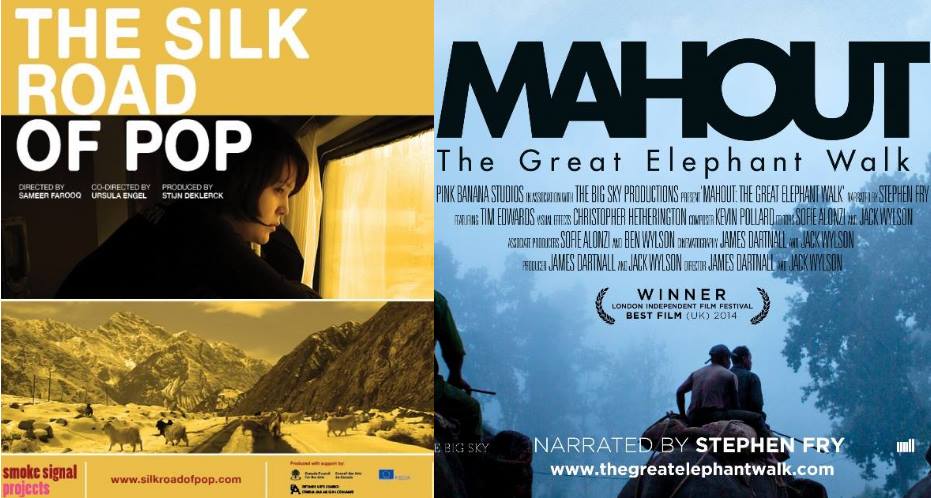
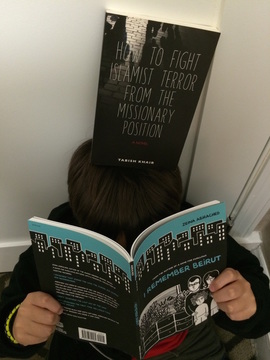
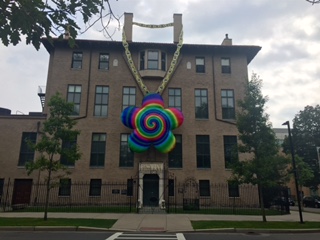
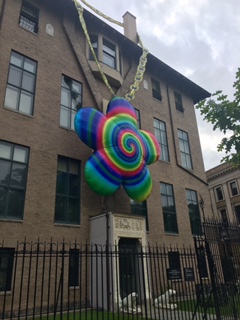
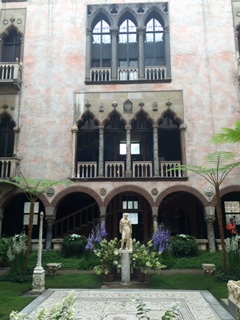
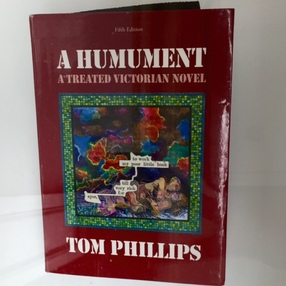
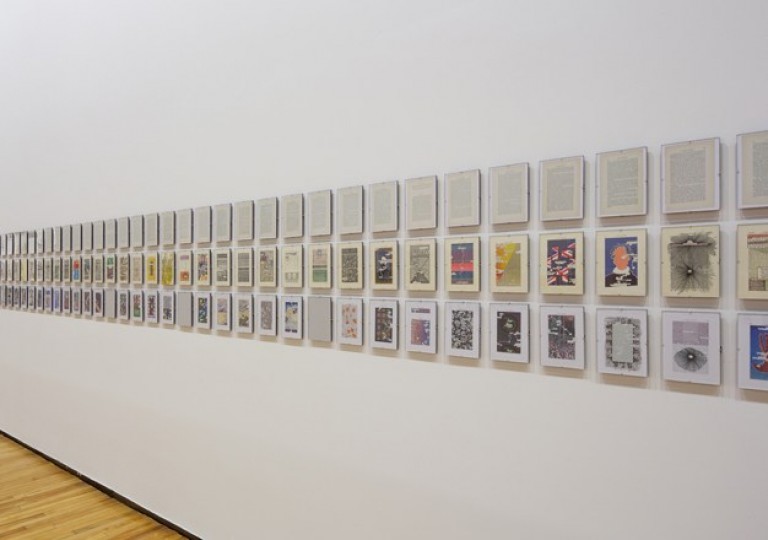

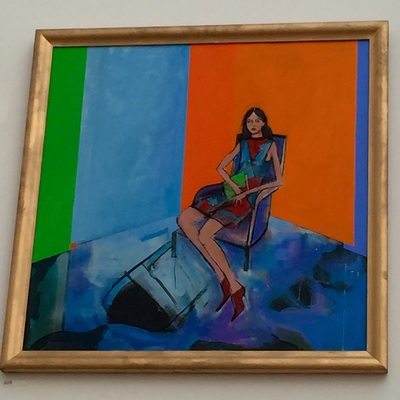
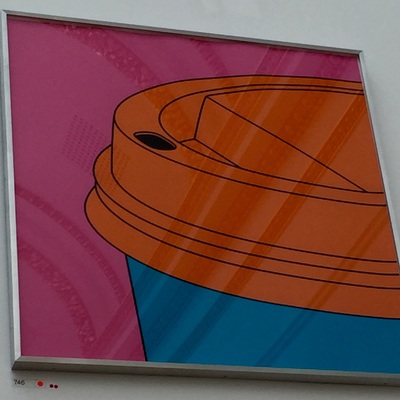
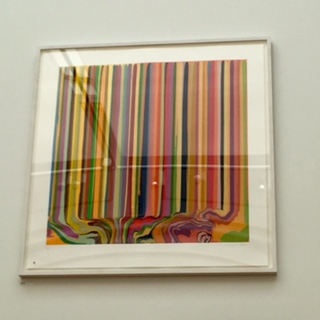
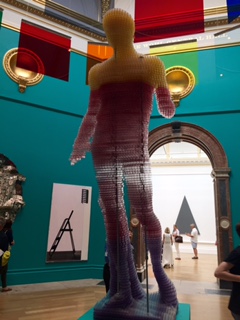
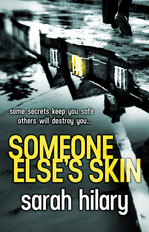

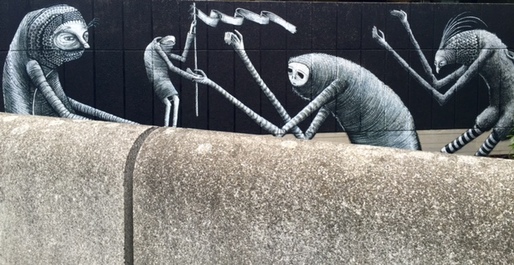
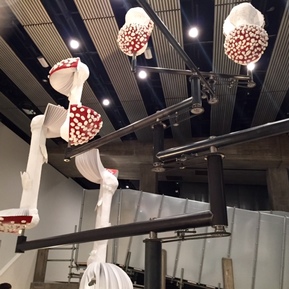


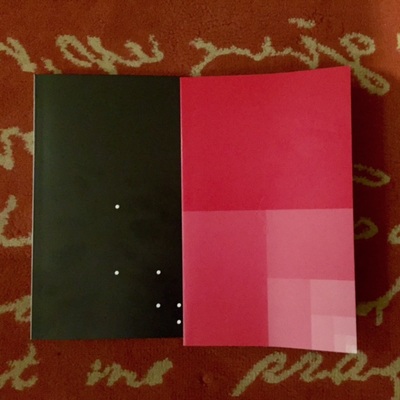
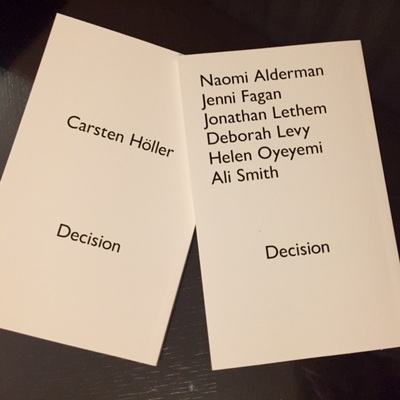


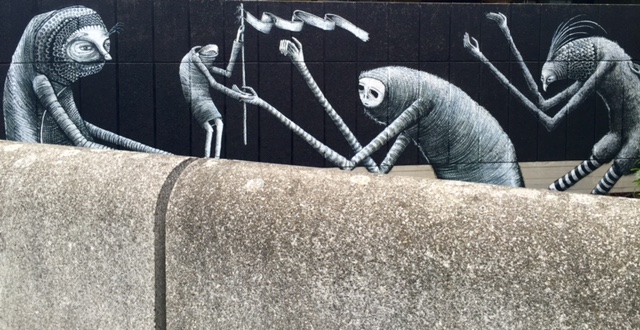
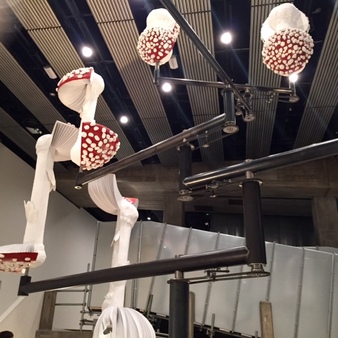


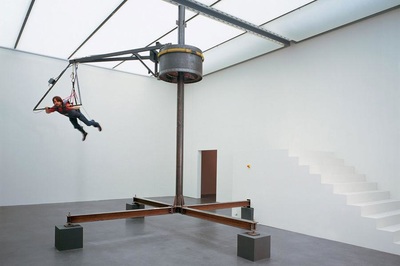
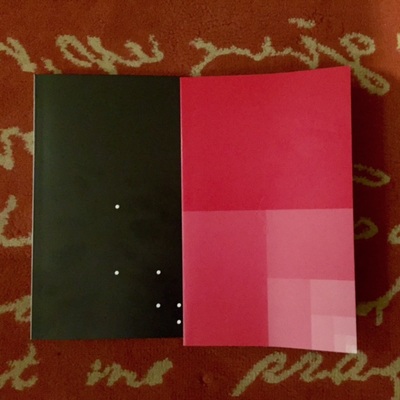
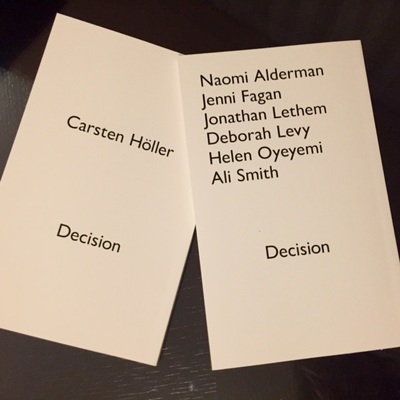
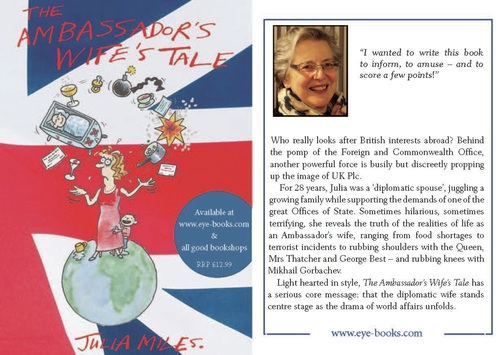
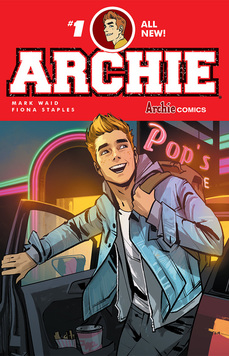

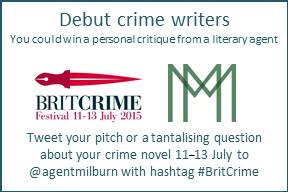
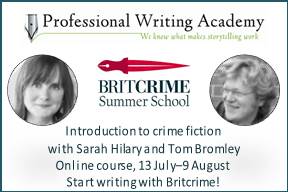
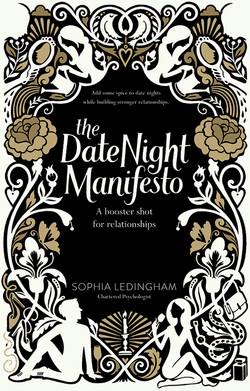
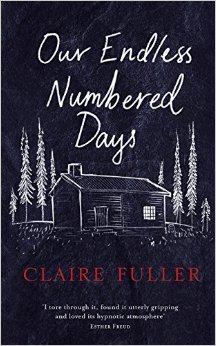



 RSS Feed
RSS Feed
